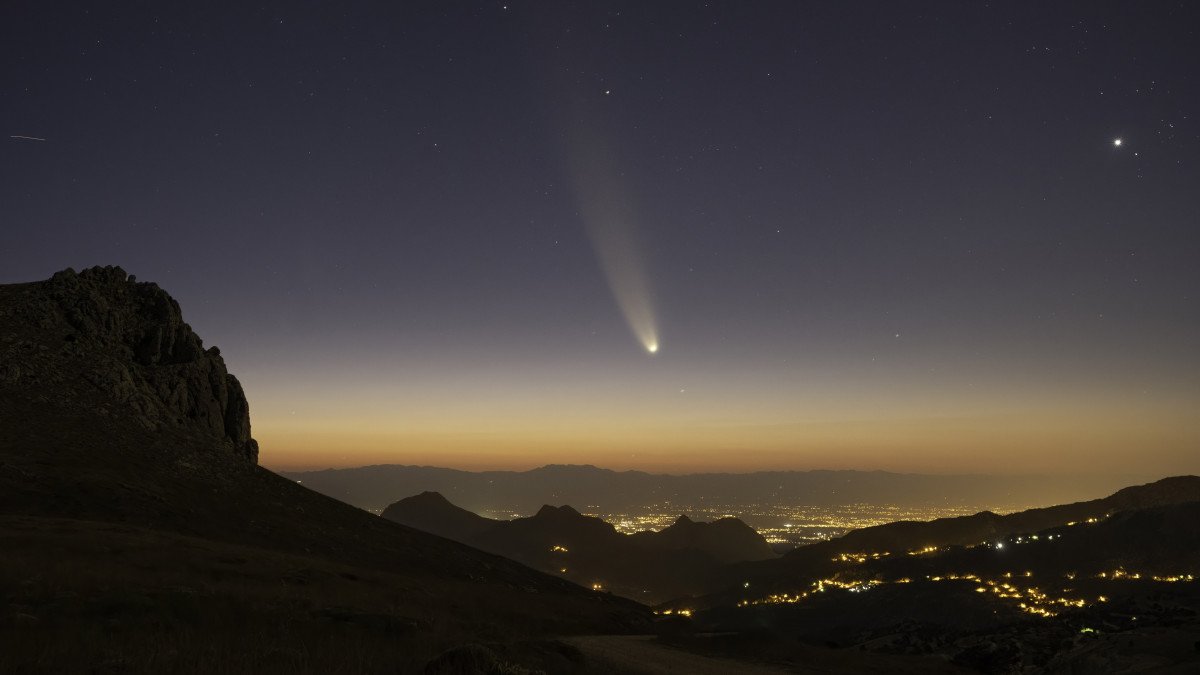With a big smile on his face, Jason Wu (63) spins on his axis. He plants one foot firmly on the ground, steps with the other foot forward, then back, clapping his hands. The only man among sixteen women, he steals the show at the weekly senior line dance class at the Taiwan Center in New York. Wu makes his happy dance steps to the song Sha La-La-La-La by Danish singer Torben Lendager.
Whoever thinks Wu is in a good mood today should have seen him on Tuesday. Then Nancy Pelosi, the leader of the US House of Representatives, settled in his native Taiwan. “She really did it!” Wu says after class, when he has caught his breath. He hits the air with his fist. ‘Taiwan and the United States are two democracies, they belong together. Surely someone has to show China that our country should not become Ukraine?’
Wu works as a handyman at the Taiwan Center, which has been a community center for the close-knit Taiwanese-American community for 35 years. This is one of the wealthiest and highly educated migrant groups in the United States. It is estimated that between 200 and 700,000 people are involved, but exact figures are lacking: Taiwanese have been registered as Chinese by the US government for a long time.
Many of them live in California, in a district that Nancy Pelosi has represented since the 1980s. For years, she has seen increasing pressure from China on Taiwan, and that of the Taiwanese community on her to speak out loud and clear. And so Pelosi, 82, was on the doorstep of President Tsai Ing-wen on Wednesday, in the twilight of her political career. In the New York borough of Queens, which is home to the second largest Taiwanese community, not only Jason Wu reacted lyrically.
Followed closely
“We were all here to applaud her,” says Sally Wu (33), who is not related to Jason. She came to New York as a student and now works at the Taiwan Center, where she closely follows developments in her country of origin.
The tension is mounting by the day. On Thursday, China intimidated Taiwan with large-scale military exercises in the waters around the island. The Chinese military has fired 11 rockets and is training for a possible real attack on Taiwan, which it considers a renegade province. The G7 club of industrialized nations has denounced the Chinese provocation in a joint statement and called for a peaceful solution to the conflict.
According to Japan, where Pelosi is making the final stop on her Asia trip this weekend, five of the ballistic missiles have ended up in Japanese waters. It would never have happened before that a Chinese missile landed in Japan’s sea area.
Like many Taiwanese in Queens, Sally Wu is not surprised by the military exercises. “The Chinese have already done this in 1996,” Wu recalls. And her parents, who still live there? ‘He cares even less. The people there have been living with the threat of violence for so long, that’s exactly the problem.’
But, Wu finally admits, beneath all the euphoria there is also fear. What if China goes beyond exercise? “I told my parents to pack an emergency case in case things get out of hand. Worst case scenario, I’ll have to try and get them here.’
Microcosm
A few blocks outside the microcosm of the Taiwan Center, the Taiwanese are dwarfed by the sizable Chinese community, much larger here than in Manhattan’s famous Chinatown. It is bustling with Chinese shops, fishmongers and covered markets, where you can find dishes from all over China, from Uyghur lamb dishes to handmade noodles from the centrally located city of Lanzhou.
Here on the street, many have never heard the name Nancy Pelosi. When the conversation turns to the conflict between China and Taiwan, people start to laugh uncomfortably. Although there are many friendships between the Chinese and Taiwanese here in Queens, the rule is: you don’t talk about politics.
A 29-year-old Chinese who works in a bubble tea shop only wants to anonymously explain why he thinks China will never attack the island. ‘Because the population is Chinese. Why would Chinese want to kill other Chinese?’
“We want more support from the US government and more pressure on China,” said Borcheng Hsu, 45, who organizes festivals for his community. Many Taiwanese Americans like him hope that Pelosi’s visit is just the beginning. What you hear here: the desire that Taiwan eventually join the United Nations and thus become stronger against China. Hsu is also not shocked by the military exercises, which will last until Sunday. ‘China must do something.’
This weekend there is a festival for the Taiwanese in New York, where the military tension will not drown out the celebratory mood over Pelosi’s visit. Borcheng Hsu has made a life-size Nancy Pelosi out of cardboard. “Even if she isn’t there herself, everyone can have their picture taken with her.”
–




